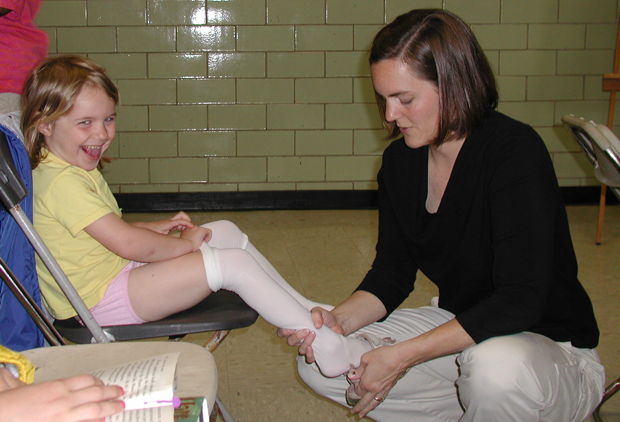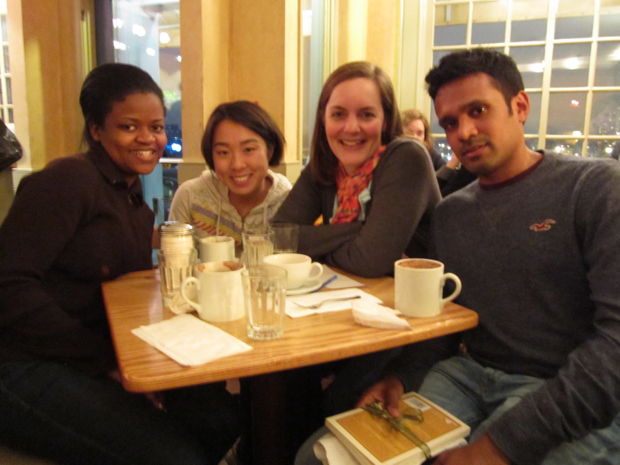During my first fifteen years with InterVarsity in undergraduate ministry, I had very little sense of vocational discipleship or a theology of work. When I was an undergraduate student at Yale, and then later when I joined InterVarsity staff, I viewed academic studies more often as an obstacle to the Christian life rather than as part of it.
Because ambition and idolatry of academic success were such temptations for me and my peers, trusting God was often couched in terms of studying less and spending more time loving people. We reasoned that God and people will last forever; things like studies and work will not. We should focus on what would last.
As a result of this kind of thinking, my InterVarsity colleagues and I placed a higher value on full-time ministry than other kinds of work, because ministry seemed to have a greater impact for the kingdom of God.
With that mindset, we encouraged many students to consider working in missions after graduation. For those students who chose grad school or other kinds of work, I remember feeling a huge sense of disappointment, as if they had chosen second-best. The results of our approach were mixed: A good number pursued various cross-cultural missions, and many are thriving in these ministries today. Yet the downside of our narrow approach to vocation was that we put pressure on some students to pursue full-time ministry when God was calling them to other kinds of work. More importantly, we were not encouraging and blessing students in the ways they were seeking to follow the Holy Spirit’s leading in their work.
In the late 1990s, God started to challenge and stretch me in this area in several ways, first and foremost by my transition into parenthood. I had my first daughter in 1994, and for the first few years I tried to live and work at the same pace as I had before. But by the late 90s (and by that time with three kids), I was struggling. I was struggling not just with the pace and learning to live in new ways. I was struggling with deeper questions about this work of parenting. I was experiencing a disconnect between the lack of significance I felt in parenting and to the significance I experienced in ministry with students. What did changing diapers and cooking meals and playing and reading storybooks have to do with God? What about ordinary, everyday life?

Then, in 2000, my husband left ministry to pursue a long-term vocational dream of creative writing. This challenged me, too. Where did art fit in the kingdom of God?
The Holy Spirit kept stretching me. In 2003 our family moved to Vancouver so I could study at Regent College. A huge emphasis at Regent is that the Christian life is all of life, especially our work. God used my time at Regent to open up and broaden my theological understanding and practice of the Christian life. This was life-changing for me.
I began to practice the presence of God while doing dishes. I started noticing and paying attention to God’s presence in everyday life and work and parenting. I began to embrace my identity and work as a mother for the first time, and to understand how this identity shapes and blesses other areas of my life.
When our family moved back to Providence in 2005, and especially as I started ministry with Graduate & Faculty Ministries at Brown, I knew this was an opportunity to learn how to do the work of ministry in a whole new way. I longed to incorporate my new understanding of the integration of faith and work in the way I approached mission on campus. But how would I do this when I had not done this in the 15 years prior?
I discovered that change and growth came as I prayed, listened to God for ideas, learned from colleagues, and took one step at a time. As I became intentional about the integration of faith, learning, and practice, God reshaped my practice of ministry in many ways. In fact, my approach has changed in almost every arena of mission:
- Bible study: I started asking different questions with grad students. In our Bible studies, I started being intentional as we reflected on the Scriptures' application to our lives: What is God’s word for us from this Scripture as graduate or medical students? What about for our current studies and future work?
- Conversations with students: When I met with students, I began asking them about their scholarship and work and where they see God in it. I wanted them to succeed and to understand that they could each become a redeeming influence in their work.
- The purpose of the InterVarsity chapter: The purpose of the InterVarsity Grad/Medical chapter changed and broadened. We began to grasp that one of the most important reasons for our existence on campus was to encourage each other to be faithful to God’s call on our lives through work.
- Prayer gatherings: What we prayed for changed. We started praying for various academic departments and for students’ scholarship and work.
- Discipleship: I developed “theological reflection groups” for grad students, a monthly discipleship group to help students learn how to integrate their faith and work.
- Evangelism: We’ve had to rethink witness as we’ve learned that grad students and faculty will have no credible witness in the university if they are not learning to integrate their faith and work.
- Leadership development: The way I’ve approached leadership training has changed. I’ve begun including Scriptures like Exodus 1, the story of the Hebrew midwives saving baby boys, as a picture of the kind of influence we can have by fearing God and doing what’s right in our work. This change has involved offering a much more expansive picture of Christian leadership that’s not only about what we do in the midst of so-called “Christian” activities, but how we’re called to be a redemptive influence in all of life.

One of the most telling indications that God has transformed me and this mission is that I’ve encouraged only one grad student in the last six years to consider full-time ministry. I’m now passionate about encouraging students to be faithful to God’s call on their lives and to become redeeming influences through their work — in whatever field God has called them to.
This article is adapted from a talk Kathy gave at the 2013 Graduate & Faculty Ministries National Staff Meetings featuring “Stories of Mission.”